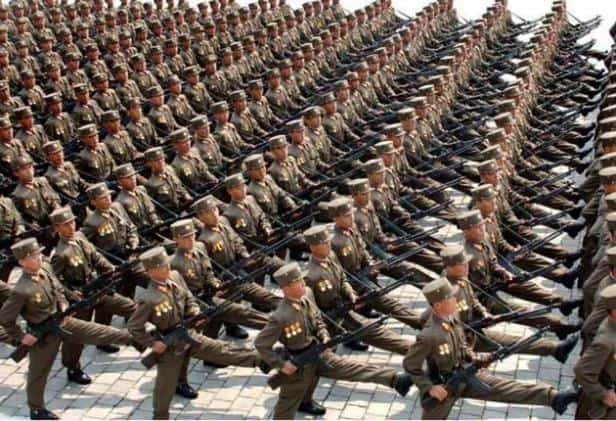
Many misconceptions about the nature of the free market system stem from an ignorance of who ultimately benefits from the market process. That the significant number of those who would benefit the most from the operations of the market—consumers—tend to also harbor much of the antagonisms against logically necessary features of the market highlights the unfortunate reality that the majority of people have yet to rightly understand how their best interests could be served by the mechanism of the market. Thus, it is not surprising that, in modern history, records abound of ambitious politicians, statesmen, and planners who have exploited this widespread ignorance in furthering utopian ends by means of eclectic and inherently contradictory policies which rational deliberation could easily expose as illusory.
One of the widely criticized features of the market system is the concept of catallactic competition. Unsurprisingly, the notion of free competition within the market society is bound to attract the severest censures, given its incompatibility with the ideological pre-possessions of most people, such as compelled egalitarianism and “social justice.” This article offers a defense of catallactic competition as an inherent feature of the social order of the division of labor and private ownership of the means of production. Through praxeological reasoning, this will illustrate the hidden effects of potential disruptions of the competitive order.
Catallactic Competition vs. Darwinian Competition
It is important to first make a clear distinction between competition as understood in the field of catallactics and competition as conceived in the Darwinian sense. Catallactic competition is an aspect of social cooperation, in which acting men consider outperforming fellow participants in serving consumers as a means toward the attainment of his own ends. It is not synonymous with the so-called “law of the jungle,” or the Darwinian conception of biological struggle for survival. As such, use of combative terms or phrases as “cut-throat,” “conquest,” or “crushing competitors” to describe the state of affairs in the field of catallactics are only misleading and, consequently, distract from serious deliberations on the subject matter. Put simply, catallactic competition precludes the initiation of force amongst market participants.
A Series of Competition
There cannot be a market independent of the process of competition. Viewing the market as a continuous process, rather than a state of equilibrium, in which there is no action, enables us to better grasp the fact that competition is always ongoing within distinct economic categories—entrepreneurs, capitalists, resource-owners, and consumers—as well as in their integrated functions. The market process is a series of competitive actions among various market participants acting to obtain scarce means which aid in the satisfaction of urgent wants. For instance, entrepreneurs—using economic calculation—embark on their buying factors. They compete based on the limit set by the anticipated prices of the marginal products. Because these resources are scarce and have alternative uses, they attempt to bid them away from other entrepreneurs who similarly evaluate and try to obtain these resources for alternative lines of production. Resource owners—through cooperating in the process—willingly offer up their resources for sale to the highest-bidding entrepreneur.
Consumers are also not immune to market competition as the products which they most urgently want are simultaneously desired by other consumers in the market. Submarginal buyers become excluded from obtaining those commodities and they are directed toward more capable buyers. Thus, purchasing and bargaining power become the determining factors in competition of each consumer in the market.
The Competitive Order and Monopoly
It is often asserted that competition precludes monopoly. But the concept of monopoly is often undefined. Monopoly is a concept with several connotations.
On the one hand, there is the connotation which implies absolute control of access to a vital resource, in which a single individual or group of individuals, through the use of force, exclude its employment by other users, whether in service of vested interests or according to arbitrary judgements. This would be the case in absolute dictatorship or a world-embracing socialist state, in which the Führer, production tzar, or some ruling bureaucracy dictates the circumstances of availability of these resources to other users. With regard to this connotation of monopoly, the above assertion can be said to be true.
On the other hand, there is the connotation of monopoly which entails control of access to definite quantities of a vital resource of production as a result of original appropriation or voluntary exchange. This could occur through previous entrepreneurial alertness, foresight, and accurate anticipation of the future state of the market. This allegedly leads to subsequent charging of a “monopoly price” for the resource in question. Before the emergence of the “monopoly,” every other entrepreneur, in executing their buying function, was free to compete in the acquisition of the resource up to the maximum quantity obtainable for future production, however, they underestimated the potential significance of the resource in relation to future market conditions.
It is important to note that this type of monopoly does not preclude free entry into the industry in question, nor does it preclude a market for potential substitutes to the monopoly good, thus, it is compatible with the competitive order. As Mises succinctly puts it in Human Action: “It would be a serious blunder to deduce from the antithesis between monopoly price and competitive price that the monopoly price is the outgrowth of the absence of competition. There is always catallactic competition in the market.” Furthermore, any attempts to coerce the decisions of this “monopolist”-entrepreneur into alternative actions, which—judged from his point of view—are dissatisfactory, become potentially disruptive of the competitive order.
Disruption of the Competitive Order
Given that the free market system is founded on the cooperation and voluntary interactions of individuals acting to satisfy their wants, it logically follows that any instance of coercive action by individuals or groups of individuals aimed at influencing the actions of other individuals become potentially disruptive of the competitive order which defines this system.
The most systematic threat to the competitive order is the fallacious economic doctrine which has increasingly gained greater acceptance in virtually every country of the world today, and which has become the basis of policies which are disruptive of the mechanism of social cooperation—interventionism. Interventionism advances the notion of a compatibility between free market capitalism and violent interventions of the state in economic affairs. Interventionism is purportedly a middle-of-the-road economic system between capitalism and socialism, that is, a third economic system of economic organization. However, as Mises succinctly remarks in his book The Middle of the Road Leads to Socialism,
Interventionism cannot be considered as an economic system destined to stay. It is a method for the transformation of capitalism into socialism by a series of successive steps.
While disregarding the inescapable interdependence of economic phenomena, proponents of the doctrine of interventionism view the economy as a compartmentalized, loosely-coupled system in which specific actions can be tailored towards various “compartments” of the economy in the hopes of obtaining desired outcomes. However, most policies advanced under interventionism almost always produce outcomes which, judged from the point of view of their initiators, are dissatisfactory. Most specifically, the policies directed towards the suppression of competition end up hurting the consumers whose needs would be better served in an unhampered market.
Arguments against competition have been offered based on imperfections of competition that allegedly would cause more woes than if competition were suppressed. But, as Hayek puts it in the book, Individualism and Economic Order,
…the evils which experience has shown to be the regular consequence of a suppression of competition are on a different plane from those which the imperfections of competition may cause.
For instance, the use of tariffs to suppress foreign competition in a domestic market usually end up raising the prices of locally-produced commodities, hurting the productivity of labor by shifting production from areas with favorable conditions to unfavorable areas, and encouraging cartelization and entrenched monopoly in the domestic market.
The Ultimate Beneficiaries of Free Competition
It is in the best interest of consumers—for whom every act of productive activity of the entrepreneur is directed—that the competitive order is preserved, for this would imply the possibility of better want satisfaction by accessing more attractive opportunities in the future. If consumers desire to satisfy various wants through the mechanism of the market, then they must realize that competition is an inherent feature of the market system and cannot be suppressed without hurting both their short- and long-term interests.
Originally Posted at https://mises.org/






